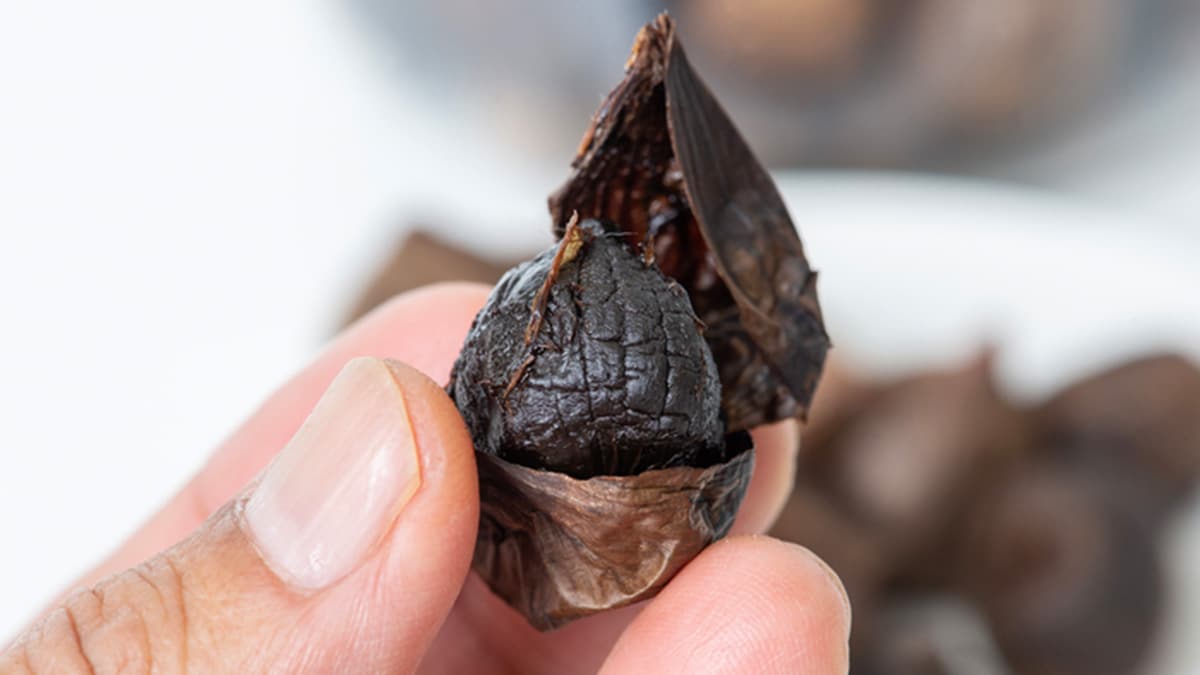Black garlic is gaining popularity in both professional kitchens and home cooking for its sweet, caramelized flavor and rich umami undertones. Yet, for those who’ve always associated garlic with a strong odor and inevitable “garlic breath,” one pressing question remains: does black garlic pack the same pungency as raw garlic—or carry the same risk of lingering aftertastes? Let’s dig into what makes black garlic so unique and whether you can enjoy it without worrying about overpowering aromas.
What Sets Black Garlic Apart?
-
Fermentation Process
-
Black garlic is made by aging raw garlic bulbs in a warm, humid environment over several weeks.
-
This slow transformation breaks down some of the harsh sulfur compounds responsible for garlic’s sharp flavor and intense aroma.
-
The cloves turn black or dark brown and develop a softer, sticky texture.
-
-
Flavor Profile
-
Thanks to the fermentation, black garlic tastes significantly sweeter and milder compared to raw garlic.
-
It offers notes reminiscent of balsamic vinegar, molasses, and even hints of dark fruit—rather than the classic, pungent “bite” of fresh garlic.
-
The Pungency Factor
-
Reduced Sulfur Content: Raw garlic’s distinctive smell and strong flavor come largely from allicin and other sulfur compounds released when the cloves are chopped or crushed. In black garlic, the fermentation process reduces these compounds, thereby mellowing the overall pungency.
-
Gentler Aroma: Because many of the sulfuric compounds either break down or transform, black garlic doesn’t deliver the same nasal-clearing intensity as raw garlic. You can slice into a clove of black garlic without being greeted by a pungent hit of sulfur in the air.
Does Black Garlic Cause Garlic Breath?
-
Less Likely to Linger
-
While black garlic does retain some of the sulfuric essence of its fresh form, most people find that it doesn’t produce the same strong aftertaste or lingering breath odor as raw garlic.
-
If you’re extra sensitive to garlic’s effects, you may still notice a faint scent, but it’s generally much milder.
-
-
Fermentation’s Impact on Odor
-
The key culprit behind “garlic breath” is a compound called allyl methyl sulfide (AMS). This substance can be absorbed into the bloodstream and exhaled from the lungs for hours after consuming fresh garlic.
-
The fermentation process changes or reduces some of these smelly compounds, leading to less potent odors overall.
-
-
Individual Differences
-
Body chemistry plays a big role in how any food’s smell manifests through breath or sweat. Some individuals might still notice subtle garlic notes lingering, while others may not detect any odor at all.
-
Hydration, overall diet, and oral hygiene practices can also influence if—and how strongly—garlic breath appears.
-
Enjoying Black Garlic Without Overwhelming Aroma
-
Use It as a Flavor Boost
-
Incorporate black garlic into sauces, spreads, or dressings for a gentle umami lift. Its nuanced flavor can enhance soups, roasts, and vegetarian dishes without overpowering them.
-
Try making a black garlic aioli or mixing mashed black garlic into butter for a savory twist on your morning toast.
-
-
Experiment with Pairings
-
Pair black garlic with ingredients that complement its sweetness, such as roasted vegetables, grilled meats, or creamy cheeses.
-
Because of its mellow nature, black garlic won’t overshadow delicate flavors—making it a versatile ingredient.
-
-
Practice Good Oral Hygiene
-
Even though black garlic’s smell is far milder than fresh garlic, brushing, flossing, and using mouthwash after a meal can help ensure you’re not bothered by any residual odors.
-
Chewing fresh parsley, mint, or fennel seeds is also a common trick to freshen breath.
-
Final Thoughts
Black garlic’s softer flavor, sweet undertones, and reduced pungency set it apart from raw garlic in more ways than one. Thanks to the fermentation process, its strong sulfur compounds are transformed, making “garlic breath” far less likely. If you typically avoid raw garlic because of its overwhelming aroma, black garlic might be the perfect way to enjoy all the health and flavor benefits of garlic without the worry of lingering odor.
Have you tried cooking with black garlic yet? Share your experiences, favorite recipes, or any tips you have for keeping garlic breath at bay in the comments below!

Comments (0)
No comments yet. Be the first to comment!